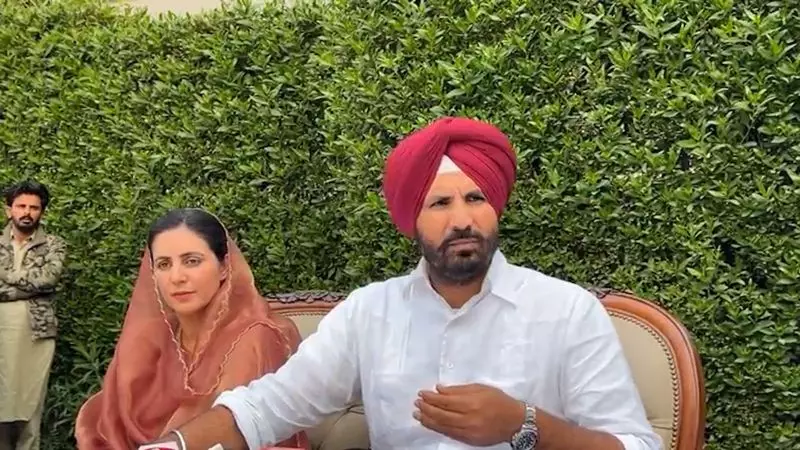
Senior leaders from the Punjab Congress unit have made their way to the national capital, signaling escalating internal tensions within the state's opposition party. The dissident group aims to present their grievances directly to the party's high command, seeking intervention in what they describe as concerning developments within the state leadership.
Congress Leaders Voice Their Concerns
The delegation includes prominent figures such as former minister Brahm Mohindra and ex-MLA Ashwani Sekhri, who represent a growing faction of discontent within the party ranks. Their decision to travel to Delhi follows what they claim has been inadequate attention to their concerns at the state level, prompting them to seek resolution from the central leadership.
According to sources familiar with the situation, the leaders have expressed frustration with Punjab Congress president Amrinder Singh Raja Warring and Congress Legislature Party leader Partap Singh Bajwa. The dissidents argue that the current leadership approach has created an environment where constructive criticism and internal dialogue are being stifled, potentially weakening the party's position in the state.
Roots of the Internal Conflict
The conflict appears to stem from multiple sources, including differences over political strategy, allocation of responsibilities, and the overall direction of the party in Punjab. The dissenting leaders believe that certain decisions made by the state leadership have compromised the party's ability to effectively challenge the ruling Aam Aadmi Party.
This isn't the first instance of internal discord within the Punjab Congress. The party has experienced similar tensions in recent years, particularly following significant electoral setbacks. However, the current situation appears particularly acute, with senior leaders feeling compelled to take their concerns directly to Delhi rather than working through established state-level channels.
The timing of this internal dispute is crucial, coming at a period when the Congress party nationally is working to strengthen its position ahead of upcoming electoral challenges. Internal conflicts in important states like Punjab could have broader implications for the party's national revival efforts.
Potential Implications for Congress in Punjab
Political observers note that such public displays of internal disagreement could potentially damage the party's image among voters. The Congress faces the delicate task of addressing legitimate concerns within its ranks while presenting a united front to the electorate.
The party high command now faces the challenge of mediating between the competing factions and finding a resolution that addresses the concerns of the dissident leaders while maintaining the authority of the state leadership. How the central leadership handles this situation could significantly impact the party's cohesion and effectiveness in Punjab politics.
Meanwhile, the ruling AAP and opposition Akali Dal are likely watching these developments closely, potentially seeing an opportunity to capitalize on the Congress's internal troubles. The outcome of this internal conflict could influence political alignments and strategies across Punjab's political landscape.
As the dissident leaders present their case in Delhi, all eyes will be on the Congress high command's response and whether they can broker a solution that strengthens rather than further divides the party in this crucial northern state.






